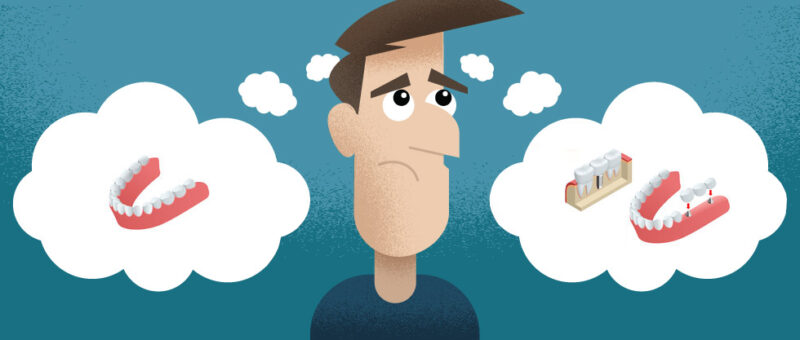Picture a healthy smile. Teeth probably come to mind, but gum care is just as important. According to the CDC, 47.2% of aged 30+ adults have some sort of gum disease. Let’s take a closer look at the various causes, concerns, and treatments for gum recession.
What is Gum Recession?
Gum recession is a continuous bacterial infection causing gums to push or pull away. Also known as gingival recession, receding gums increase the risk of toothaches, decay, and overall sensitivity. Gum disease progresses from mild to severe in the following stages.
- Gingivitis – the first phase of periodontal disease, when plaque leads to gum irritation, bleeding, and swelling.
- Periodontitis – plaque sets into tartar and creates buildup. Loose pockets can fill with bacteria and look very irritated. Bone loss is also possible.
- Advanced Periodontitis – continued gum recession causes teeth to lose support. At this point, moderate to severe bone loss occurs and teeth can easily fall out
Ignoring gum disease creates serious health complications in the long run, such as stroke, diabetes, and heart disease. Early prevention is critical. Even with consistent care, it’s still a possibility that receding gums may surface. The number of times symptoms are left untreated determines the overall condition. It’s important to visit a dentist right away.
How to Know If Your Gums are Receding
Gum disease may not be immediately obvious. A gradual process, receding gums develop over time for different reasons. Gum recession involves a variety of factors including:
- Age
- Genetics
- Diabetes
- Drug abuse
- Poor dental care
- Hormonal changes
- Poor nutrition
- Select medications
- Tobacco use
- Mouth piercings
Routine dental hygiene helps to prevent and minimize the risk of gum disease. Symptoms of gum disease include:
- Sensitive Teeth. Inadequate plaque removal on teeth and gum lines can cause irritation. When left untreated, gingivitis or inflamed gums feel tender to touch.
- Bad Breath. A persistent bad taste might mean gum disease.
- Bleeding. Notice any blood after flossing or brushing? Frequent gum bleeding is a likely indicator of gum disease.
When to Seek Professional Treatment for Receding Gums
Addressing gum disease is important. Treatment starts with good hygiene. Daily brushing and flossing are routine ways to prevent gum disease. If you notice any signs of receding gums, be sure and talk to a dentist as soon as possible.
Gums Recession Treatment
All Smiles Care is dedicated to serving patients with gum disease. Our experienced staff guides every step of the way, from creating oral health plans to improving smiles in a comfortable, safe environment. Each plan is individually customized, so gum recession treatment cost varies by case. Potential gum recession treatment methods include:
Bacterial Testing
A bacterial test provides information on the species and number of microorganisms in your mouth. Antibiotics like Arestin are prescribed if necessary.
Full–Mouth Disinfection
Rid the mouth of bacteria with a thorough cleaning of the cheeks, tongue, and palate.
Scaling and Root Planing
A detailed teeth cleaning removes toxins like plaque, tartar, and bacteria from small periodontal pockets.
Laser Therapy
Concentrated light energy kills bacteria, sterilizes inflammation, and removes diseased tissue. This can often be done without scalpels, sutures, or common discomforts associated with traditional gum recession solutions.
Home Care
A medicated mouth rinse, water pick, or electric toothbrush may help to control the infection and promote further healing. Be sure to brush and floss your teeth twice daily.
Gum Disease Treatment
The cornerstone of successful gum recession treatment starts with oral hygiene habits. Bleeding gums are generally caused from inadequate plaque removal on teeth and at the gum line. The quicker you treat oral issues like gingivitis and gum disease, the sooner you’ll get back to better health. Are you in need of gum recession treatment? Don’t put off this important issue.
Get in Touch with All Smiles Care Today!
Dr. Gary Imm has been caring for Carroll County families for over three decades and has regularly been voted “Carroll’s Best Dentist.” Meet our dentists and book an appointment today, or call (410) 876-2096 for quick assistance. We’re here to serve you!

